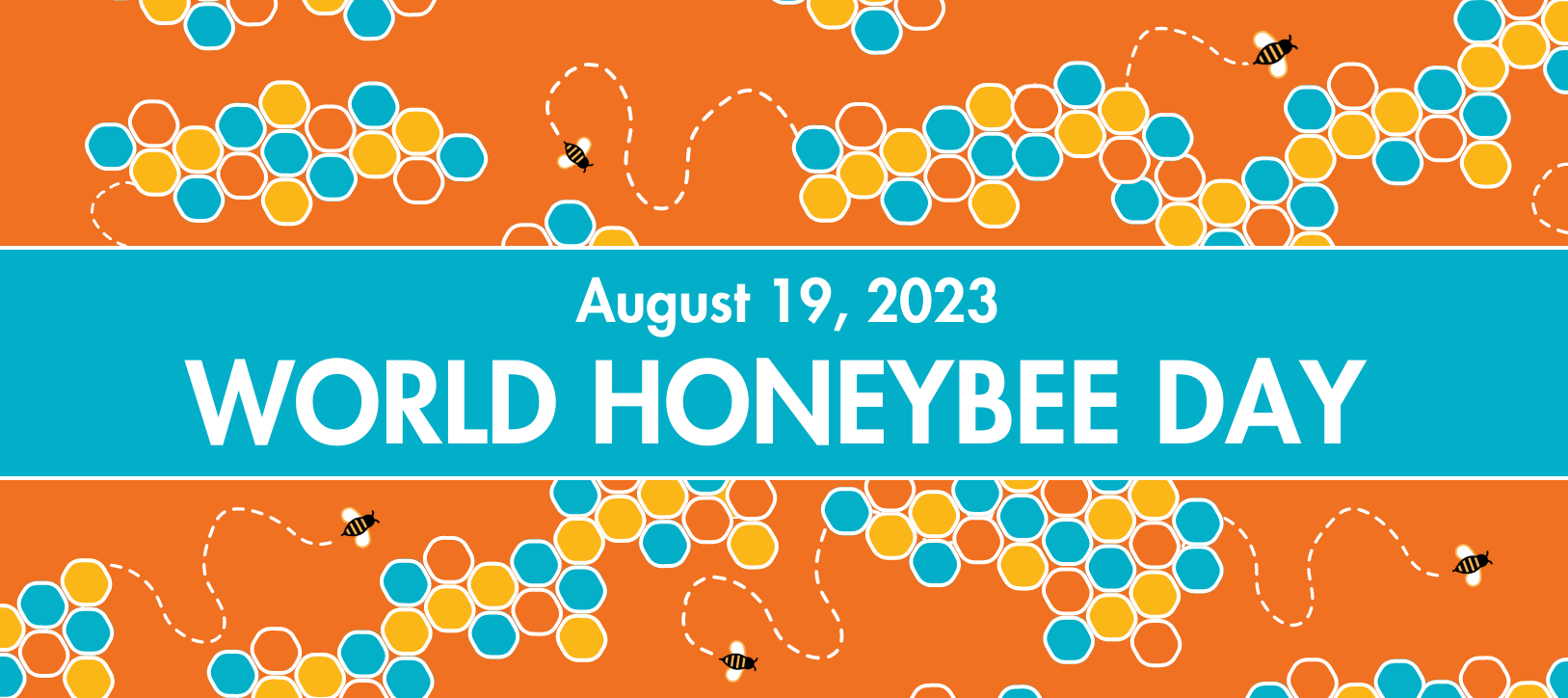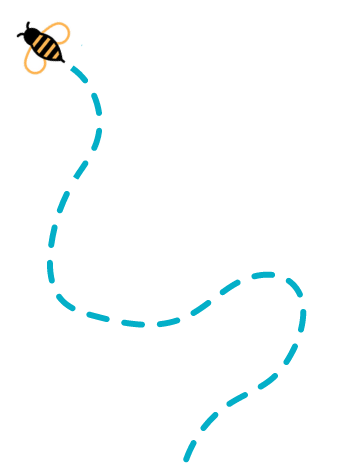What’s all the buzz about? Meet CMTM’s honeybees!
Summer is here, and the Children’s Museum & Theatre of Maine’s seasonal observation beehive is once again buzzing with activity!
Visitors will find the bees in the IDEXX STEM Learning Hub on the third floor. The wall-mounted observation beehive features a transparent window within a wooden frame that houses hundreds of honeybees.
The hive’s unique design allows guests to look closely at the bees while observing behaviors like making honey, cleaning the hive, caring for eggs and larvae, producing beeswax, and leaving the hive to harvest nectar and pollen.
Celebrating Honeybees
Bees are essential to food production. When bees harvest nectar they transfer pollen from flower to flower. This helps plants reproduce and contributes to the successful growth of the fruits and vegetables that humans eat. This process is called pollination. Bees and other pollinators help keep food on our tables!
All that effort calls for a celebration, and August 19, 2023, is WORLD HONEYBEE DAY! CMTM is honoring these incredible, hard-working pollinators with a full day of programs and events. Visitors will be able to:
🐝 Build a honeybee during an open MakerSpace session with recycled & reclaimed materials.
🐝 Design a pollinator to be little or fluffy, fast or funny.
🐝 Explore the science of honeybees by playing a pollination game and learn how honeybees communicate–through dancing!
World Honeybee Day programs are included with admission. Keep an eye on the CMTM Events and Programs Calendar for updates.
Observation Beehive FAQ’S
CMTM receives lots of questions about this unique exhibit. Read on to learn more about our honeybee hive.
How do the bees get their food?
CMTM’s Live Exhibits Team feeds the bees! Visitors can see their feeding station inside the hive. They also have access to the outside. Keen-eyed guests may notice pollinator food and water stations on CMTM’s grounds, and the Teaching Garden in the Outdoor Adventure Playground is full of flowers.
What do bees eat?
Honeybees use nectar and pollen from flowers to sustain their hives. Nectar is converted into honey, which is rich in minerals and carbohydrates (and a tasty treat for both humans and bees!). Pollen is a great source of protein and is an important food for growing larvae.
Where is the queen bee?
Queen bees are essential to the life of their hive. They are the only bees in a colony capable of laying fertilized eggs, and they regulate the hive’s activity through chemical messaging. There is only one queen bee in each colony.
The Queen can be identified by her body type. She is larger and longer than other bees, with an abdomen (def: the belly or part of the body that contains the digestive organs) that extends beyond the length of her wings. Her back is shiny and hairless, while worker bees have fuzzy abdomens. CMTM’s queen has a harmless hot pink mark on her back to make her easier to spot! Beekeepers often mark their queens so that they are easy to find.
Still can’t find the queen? CMTM’s hive is double-sided! She may be temporarily out of sight.
Will the bees sting me?
Worker bees have stingers but will only use them to protect themselves from danger. Honeybees are generally very docile, and some beekeepers handle their bees without protective gear!
CMTM’s observation hive allows visitors to see the inner workings of a beehive safely. They can study the bees in their home, doing what they do best: making honey, raising young, and caring for each other! Seeing bees this way helps build empathy for these important insects and helps children learn not to be afraid of bees.
What do the bees do in the winter?
CMTM works closely with a professional beekeeper to ensure the health and well-being of the hive. When local food sources become depleted with the change of the seasons, the bees go off-site to a place where they can comfortably rest for the winter. The bees return to CMTM in late spring when the Portland Peninsula is in full bloom.
With Gratitude
The IDEXX STEM Learning Hub, home of the observation beehive, was made possible thanks to the generous support of IDEXX.
Summer Sustainability Program Sponsor
From June to September 2023, CMTM’s Watershed Exploration Programming, Visiting Scientists Program, and Pollinator Program are brought to you through a generous partnership with one of Maine’s leading sustainability stewards, L.L.Bean.
Please join us in thanking L.L.Bean for their ongoing commitment to the outdoors and children and families across the state.







